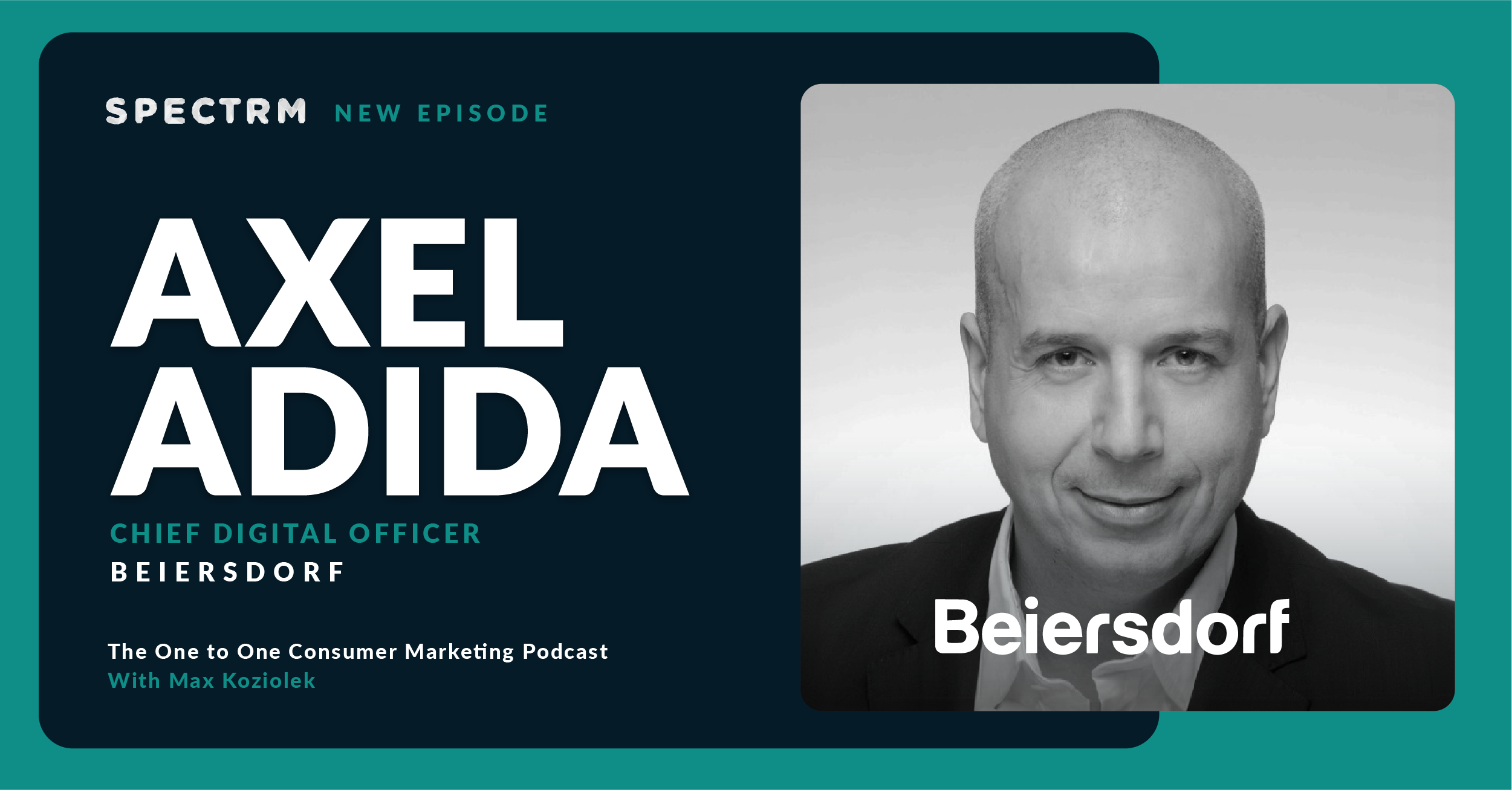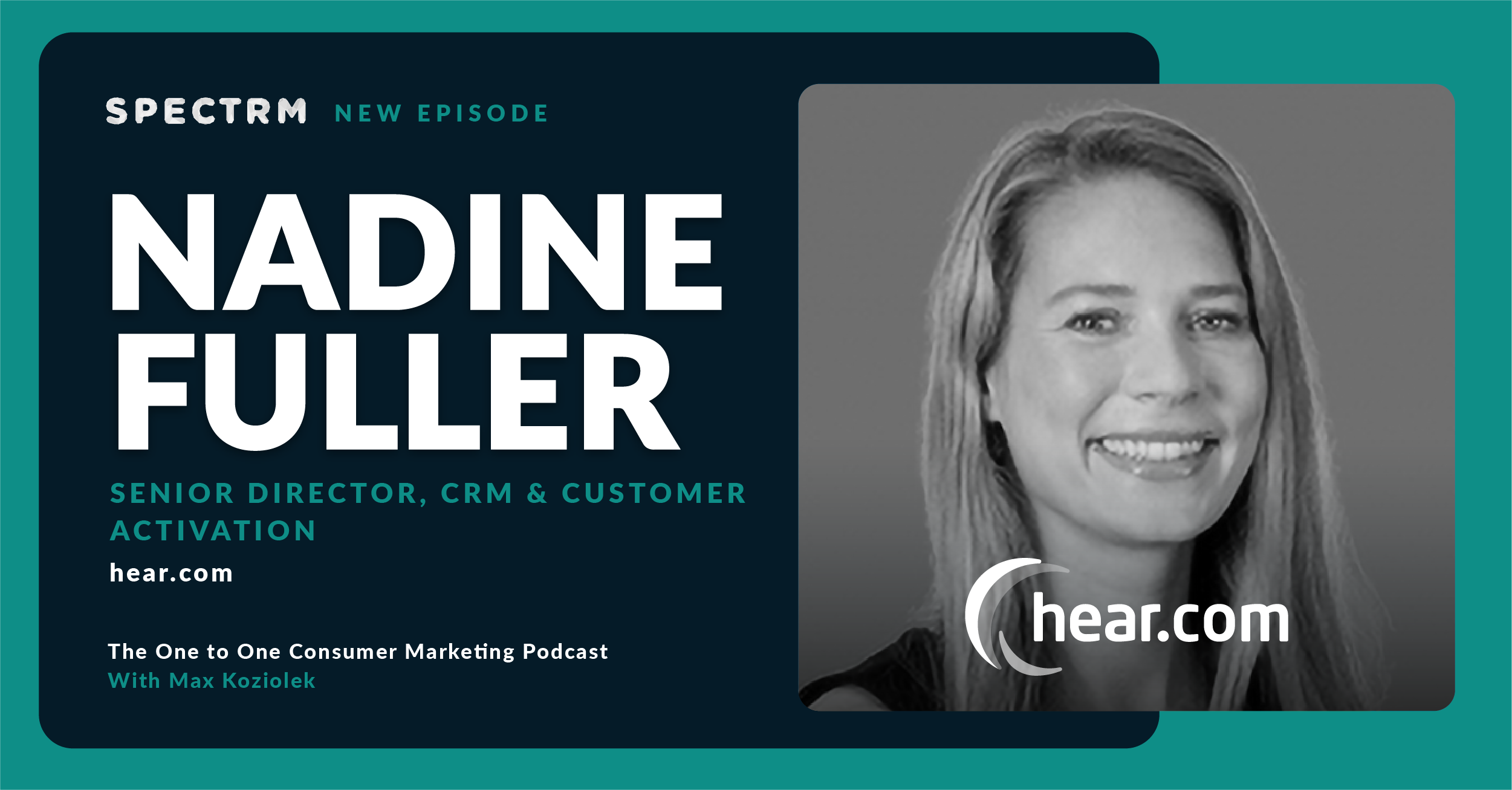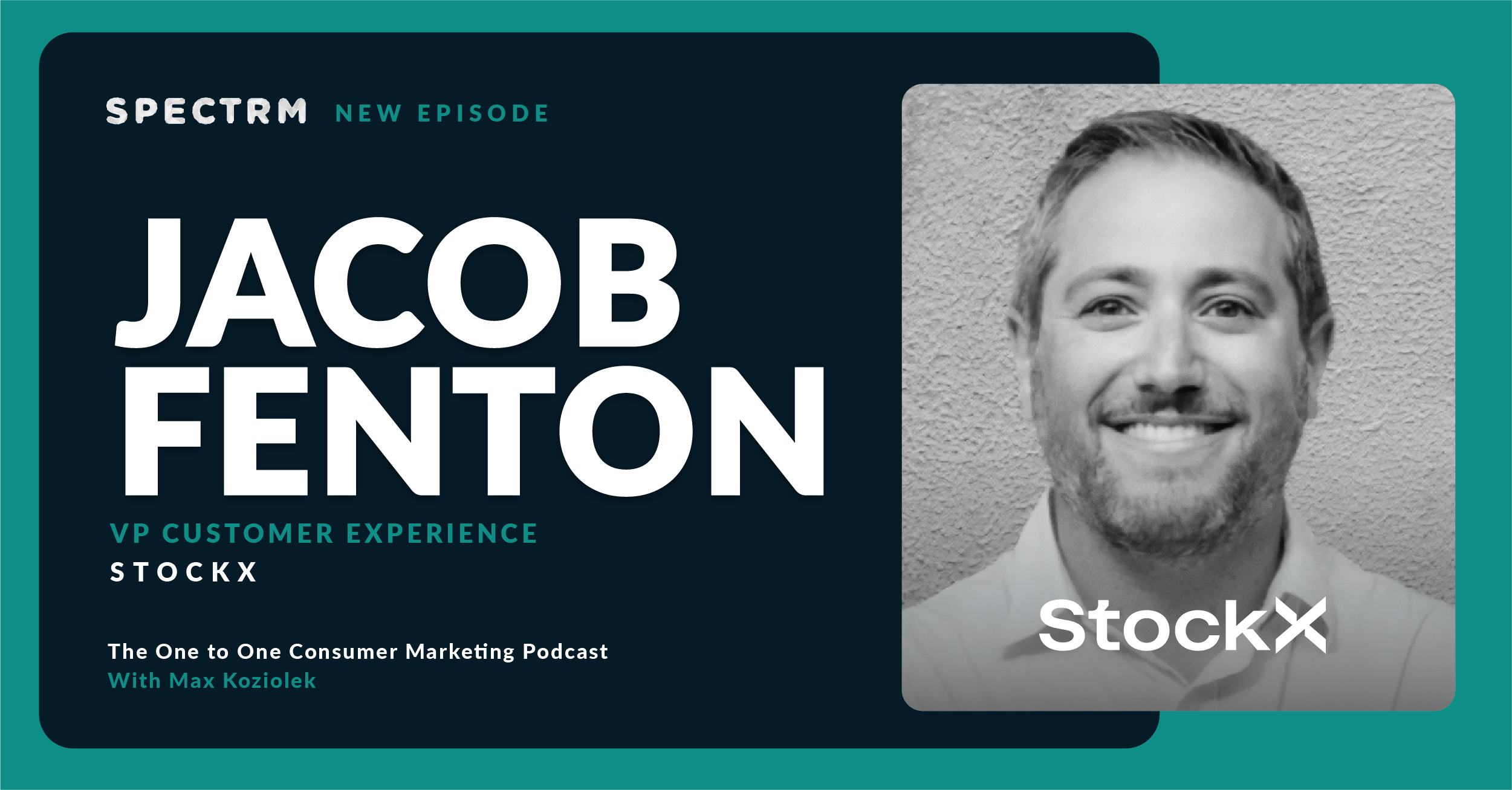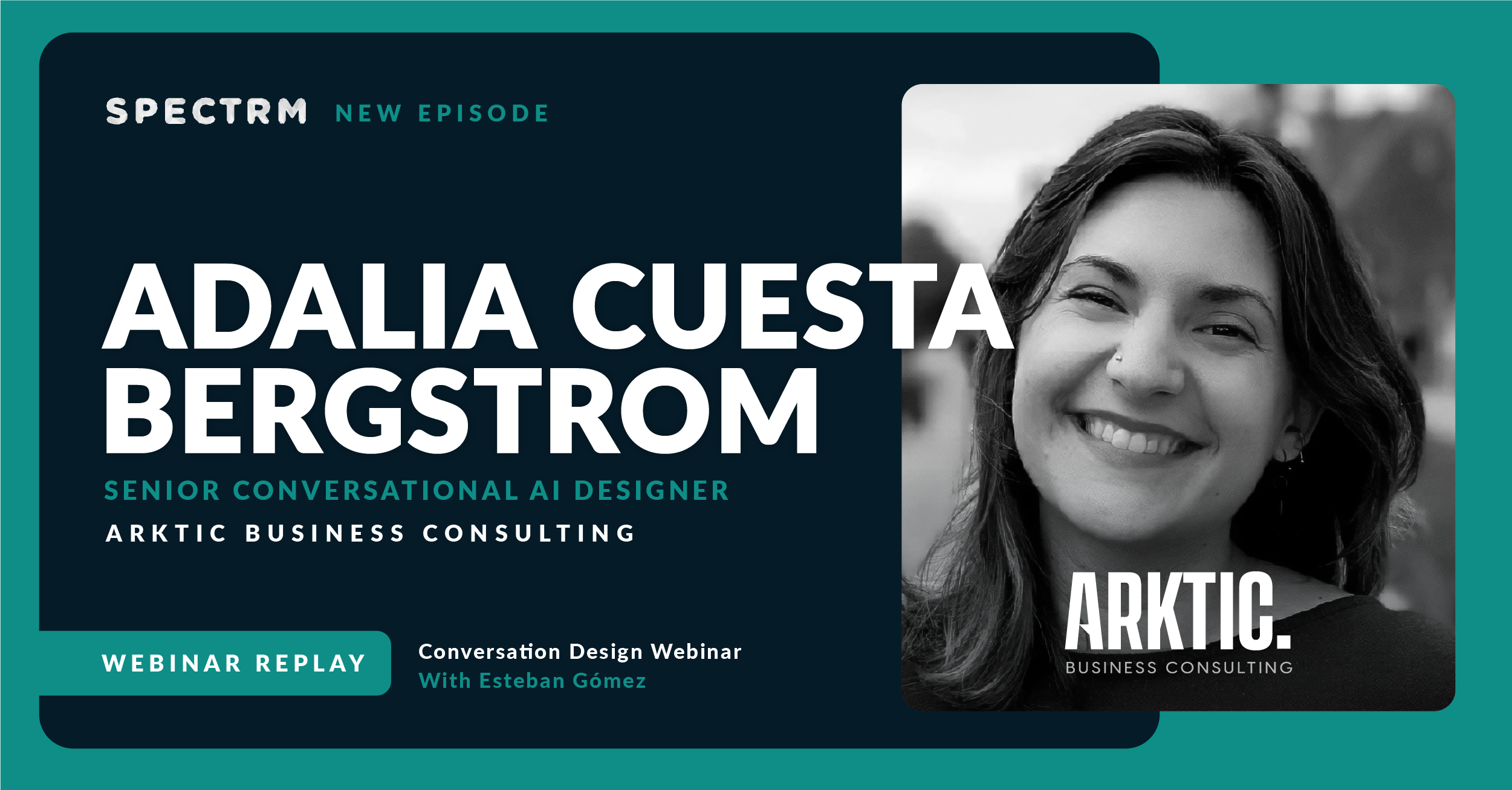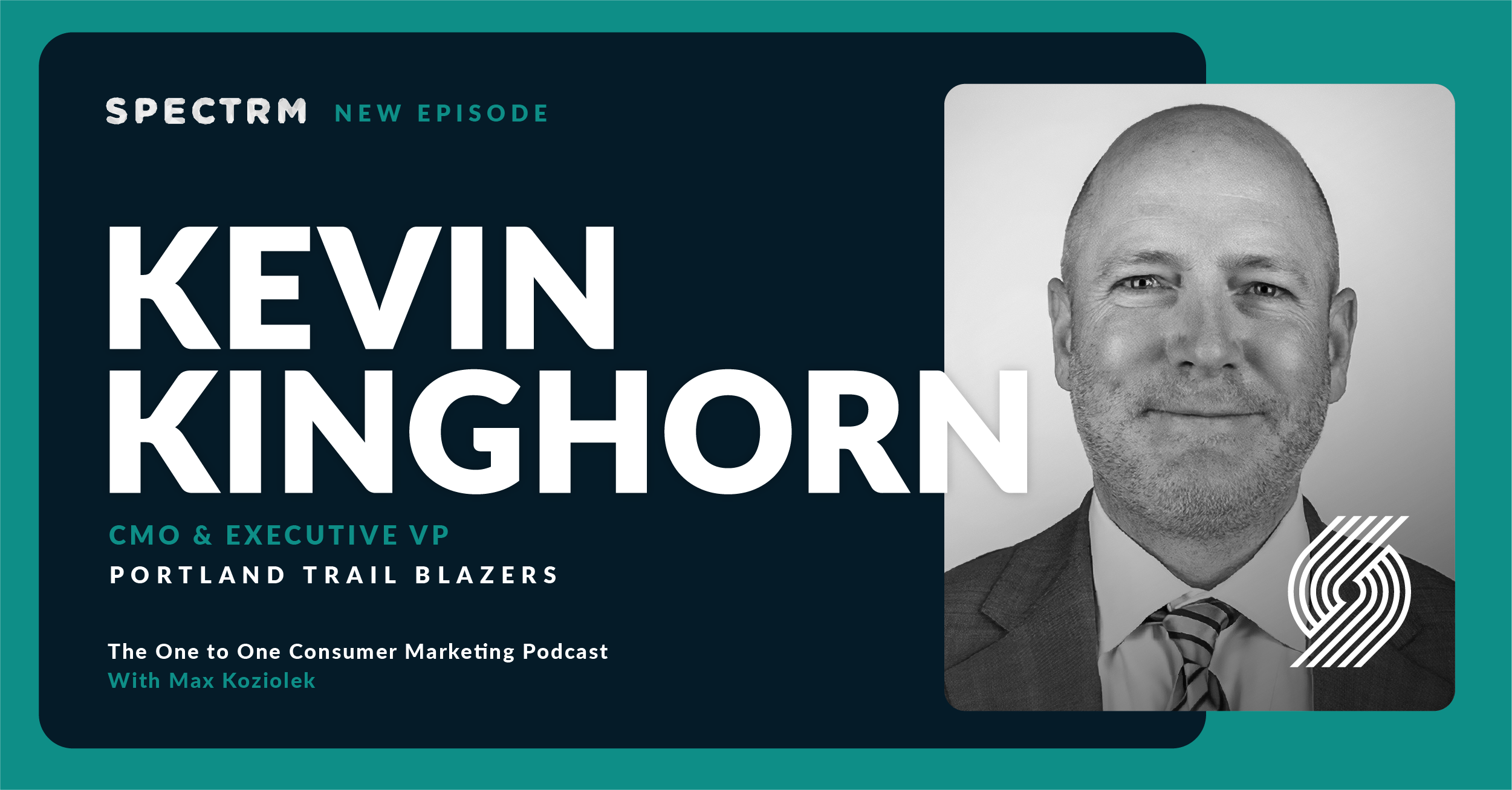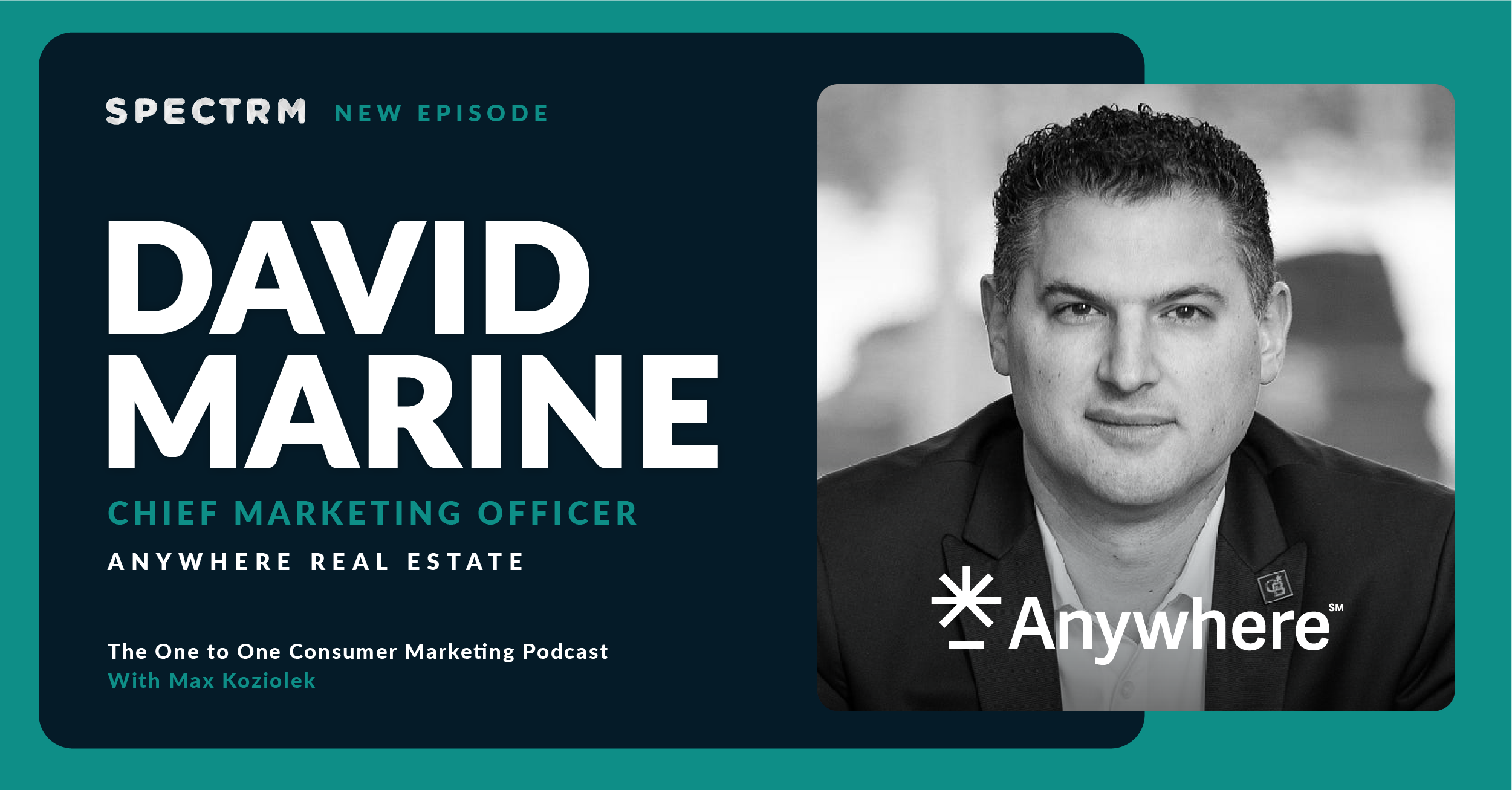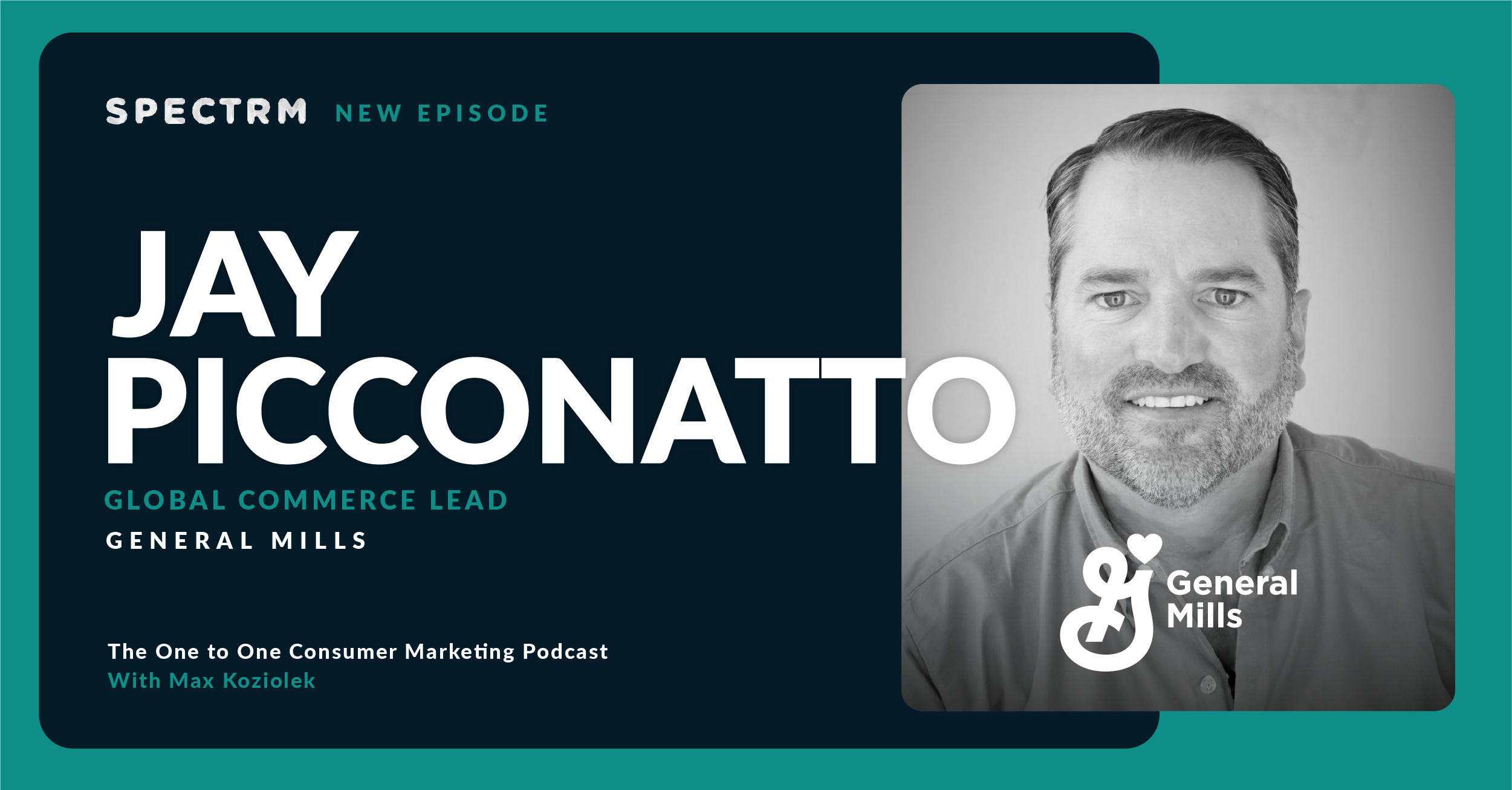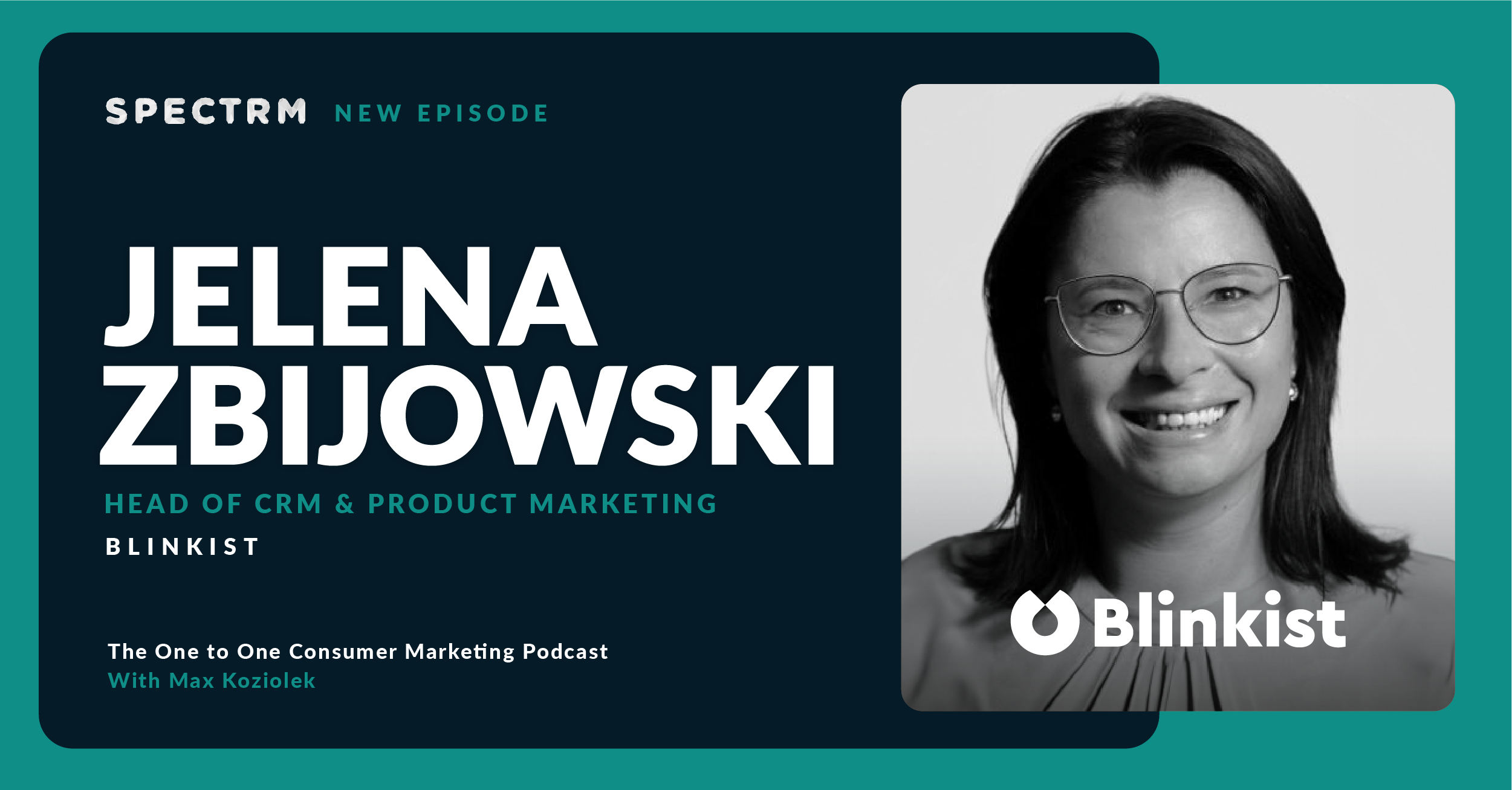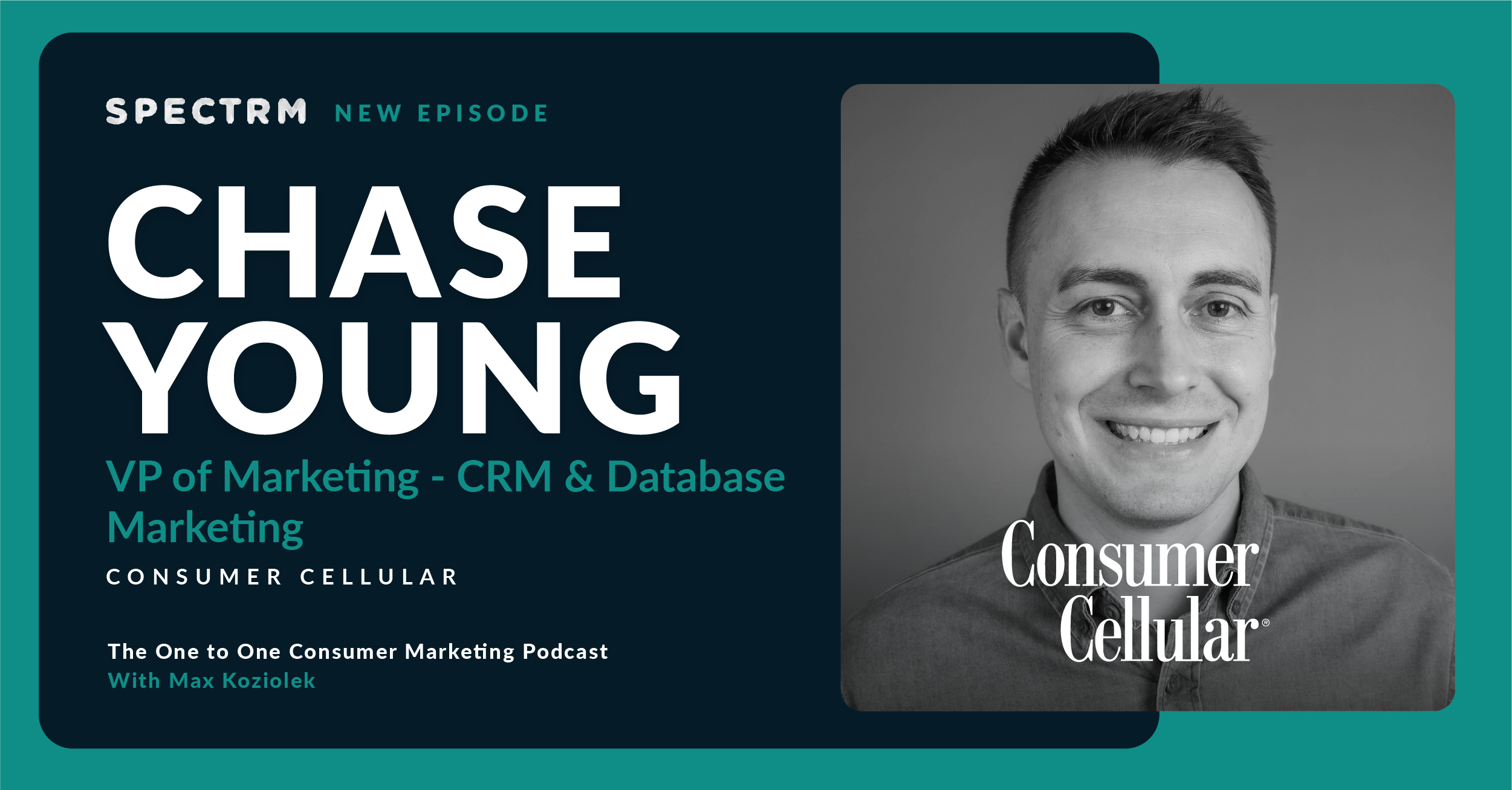Summary
Ben speaks with Luisa Fernanda Muñoz, Head of Customer Experience and CRM at Betfair, the world’s largest online betting exchange. They discuss the need for human-to-human marketing, and how to build relationships with your customers based on their unique avatar — all while caring for them within the regulations of the gambling industry. They also talk about practices to stay top-of-mind with customers, how Betfair uses AI to suggest next actions, the challenges to CRM, and why you need to be selective with your data.
Topics discussed
- Luisa’s journey in marketing, from an engineering background, to managing service teams and loyalty programs at El Tiempo Casa Editorial and Samsung, to becoming Head of Customer Experience and CRM at Betfair.
- The current state of consumer marketing, and why more companies should be focused on retention and building relationships.
- How Luisa thinks about CRM, including understanding different avatars and building a journey for each one, and why the value offer is everything.
- How Betfair takes care of their customers by pushing content in a responsible way to stay in line with regulations.
- The biggest challenges to succeeding in CRM, like how to stay top-of-mind and to listen to your customers.
- How Betfair uses AI in their “betbots” to make next bet offers based on behavioral history.
- Advice for marketers on delivering what you promise, building relationships, and focusing on retention.
- How, in five years, consumer marketing will use more technology to create better relationships — but tech won’t replace those relationships.
We need to listen to our customers, because they are the only ones that tell us if you are doing things good or if you are failing. They are sending you alert messages all the time. The challenge is to listen to these alert messages, how to action that and implement quick wins, improve. Listen, improve, and implement. Listen, improve, and implement. In this way, they won't go. But sometimes companies just are not customer centric, but egocentric, right?
Guest biography

- Head of Customer Experience | Digital Stategy | CRM | Growth | Loyalty | Customer Knowledge | Human to Human | Membership Marketing
Company overview
Our business was born to create a fairer betting marketplace. One that disrupted an entire industry and put customers in control. Today, we’re the worlds biggest online betting exchange. We’re one of the top 75 most valuable brands in the UK. We’re part of Flutter UK&I, one of Time100’s most influential companies. And our sports betting and gaming products offers players more ways to bet and more ways to win.
Industry: software development | www.betfair.com
Subscribe to the podcast newsletter
Transcript
00:00
Intro
We need to listen our customers because they are the only ones that tell us if you are doing things good or if you are failing. They are sending you alert messages all the time. The challenge is to listen these alert messages, how to action that and implement quick wins, listen, improve and implement. Listen in, prove and implement. In this way they won’t go. But sometimes companies just are not customer centric but egocentric, right?
00:40
Ben Gibert
Hey everyone, and thanks for listening to and watching the one to one consumer marketing podcast. Really exciting episode today. I’m here with Louisa Munoz who is head of customer experience and CRM at one of the world’s largest online betting exchanges. Louisa, thanks so much for joining with today.
00:57
Luisa Fernanda Muñoz
Hi Ben, thank you for the invite. Nice to be here.
01:01
Ben Gibert
Yeah, I’m looking forward to this conversation. Before we dive into some of the topics on consumer marketing and retention, why don’t you give our audience a little background on yourself and how you ended up in your current role.
01:13
Luisa Fernanda Muñoz
For sure. As been said, my name is Luisa Fernanda Mun. I’m from Colombia. I’m an industrial engineer with a master’s degree industrial engineering and also a specialization in marketing. And currently I just began a certification in AI. You need to be updated in the trends. I have more than twelve years of experience in human to human digital marketing and customer relationship management. I have a background managing service teams and loyalty programs and integrating all the entire digital ecosystem from a customer centric perspective. I began working in one of the most important companies in Colombia in terms of media, el Campo Casa torial. There I managed the service team after that, the loyalty program. And when I was managing the loyalty program and the customer relationship cycle, I received a call from Samsung and Jail here in Colombia. They said like, hey, we have a loyalty program, do you want to manage that?
02:15
Luisa Fernanda Muñoz
I said yeah, sure. Samsung needs a big company, let’s do it. I began managing the loyalty program after that. I also assumed the responsibility of CDM and at the end I was managing all the digital ecosystem for Samsung Columbia in the pandemic time. So it was a big challenge being there. I moved to this company, now I’m in a betting company as a head of customer experience when I’m responsible for the end to end customer journey. And the most important that ensure that we always deliver the promise of value. So something really interesting is that we have like a local model. So we need to ensure that every area works as in giant to ensure that we are delivering what the customer and the local customer wants. So it’s a big challenge and we are really happy doing that.
03:09
Ben Gibert
Yeah, I can imagine. It’s a very big yeah, it’s a very big challenge. Thank you for the background. There’s a couple of things I would love to dive into a bit more. First I have to ask you’re an industrial engineer, right? By training industrial engineer to marketing, I can see the fit a little bit with CRM, but I’d love to hear from you how you made the joke.
03:29
Luisa Fernanda Muñoz
You know that currently growth marketing is just to integrate a lot of processes and capabilities and as an engineer and as an industrial engineer, you need to be able to integrate different processes in order to achieve a result. And here when you take that to the marketing area, you just need to integrate all the company to acquire customers and to retain customers. So it makes all the sense when you put it in this place.
03:57
Ben Gibert
Yeah, absolutely. So you have a very systems based approach and you’re probably not scared of getting into the details and the technicalities of everything that fits together, right?
04:08
Luisa Fernanda Muñoz
For sure, yeah, system for everything. But that’s a good thing and it’s a good mix because you are not like executing but you’re a thinker but also a doer because you know how to do things because you’re engineer but also you include the creativity to strategies. So it’s a really good match.
04:32
Ben Gibert
Yeah, I believe it. I think in CRM in particular, that ability to zoom out, see the whole picture and then zoom back into the details that matter makes a big difference for your role.
04:42
Luisa Fernanda Muñoz
You sometimes find marketers that just know about one thing and they say like I’m a marketer but I just know about SEO or I just know about PPC or I just know about brand. But being an engineer, if you’re a really good marketer, you need to have the complete view and all the background to understand what are the things that you need to activate or the triggers that you need to activate in order to make things happen.
05:12
Ben Gibert
Yeah, absolutely. I have to ask also because you mentioned Samsung during the pandemic and taking over the whole digital experience, what was that like? I’m sure it was a crazy time.
05:22
Luisa Fernanda Muñoz
Yeah, for sure. I was just assuming the role and it’s like, hey, tomorrow you’re going to work from home and after that you never return to the company after one year. It was like crazy and we needed to do a big change because Samsung used to be a retail company and now were like no, we cannot do retail, we need to do digital and we need to sell not just a product but a benefit so we are stronger together. It was our thing. So were selling the way where you can communicate with all your family and we will give you this opportunity. So it was a big challenge but also it was really satisfying at the end. Know that after six months were selling the same before the pandemic so it was great.
06:15
Ben Gibert
Yeah, I’m sure it was an incredible experience to watch how quickly that shift. I think it’s also a shift during the pandemic, that a lot of long term changes, more things moving into digital. But then with the pandemic, everything basically happened overnight.
06:30
Luisa Fernanda Muñoz
So fast, you need to think fast, act fast, change fast, react fast. Everything about us fast because you didn’t know how was it going to be, how it was going to affect everything. The customers behaviors changed. So it was a really good example of fast reaction.
06:54
Ben Gibert
Yeah. And maybe that could be part of your answer to the next question in terms of fast reaction. But how would you summarize the state of consumer marketing today?
07:03
Luisa Fernanda Muñoz
I think that I can summarize it simple. I think that currently companies in the state of art of consumer marketing are focused on acquisition strategies that boost retention. Efficient acquisition impacts growth, but retention strategies ensure the sustaining and long term relationships, but the budgets are reduced. So the main goal is just to attract users, not for the first transaction, but for the second and the third. And there is the change of the mindset. Before, companies were focused on transaction, and that’s not anymore. Now companies need to be focused on the relationship.
07:42
Ben Gibert
Yeah, absolutely. I mean, growth at all costs, I think, is dead right now. We’re definitely seeing all companies focus on retention, on really driving customer lifetime value higher, on building that relationship, like you said. And how do you think about customer retention and lifecycle marketing in that context?
08:01
Luisa Fernanda Muñoz
As I said, like, customer retention is mandatory if a company want not just to grow, but to remain over the time. For that reason, you need to structure and understand what is your customer lifecycle, know your avatar, because maybe you have different customers. And so you need to build a journey for each one. And you can have a lot of journeys and also a lot of funnels. So the definition of each point at any part of the journey is really relevant. Also, the offer is everything for a marketer and the communications and the promotional strategy. So you need to understand everything and give this promotional strategy not just for your new users, but your actual users because they are the ones that are ensuring that your life in the lives of the business. Right?
08:51
Ben Gibert
Yeah, so true. The offer is so key in continuing to drive those repeat purchases, those interactions. At such a large online betting company, you must be sitting on an incredible amount of data, like a large amount of customers that you oversee in terms of CRM, can you talk a little bit? Like, how do you deal with that? What is your approach to it?
09:11
Luisa Fernanda Muñoz
Sure. Here, retention is everything because for sure, you are receiving a lot of customers day by day. But here there is something really interesting is that you need to find a match between your avatar because you have customers that play for entertainment, but there are other customers that play for win. So you need to understand this freaky thing here. You need to also be in mind your commercial strategy, that there is something really important that you need also to think about the safer gambling responsibility. So you cannot push and push like another business, because here you need to push but the consumption, but with responsibility to don’t create addict consumers because you don’t want that. So at the end of the day, the retention, when the customers say it knows that you are taking care of them, they value you more. And that’s a big change because I’m pushing you to consume, but with moderation for entertainment, with taking care of you.
10:15
Luisa Fernanda Muñoz
We have a lot of tools to take care of our customers. And that’s about our relationship, is like, you need to push the consumption, but giving all the benefits and taking care of your customers. And we really take this very serious.
10:31
Ben Gibert
Yeah, I believe it. It’s a very unique industry as well in that sense, right, where it’s not just about the consumption. Like you said, you have a responsibility. I’d love to understand a little bit more about that. Right. Do you define kind of limits of consumption within CRM and then you flag people and kind of adjust programs accordingly? What does that look like on the ground?
10:54
Luisa Fernanda Muñoz
As you know, Columbia, or maybe you don’t know about Colombia, it’s the regulated country in Latin America. So we have a really strict regulation where we need to have controls in place, technological controls. But also we have a team that controls and monitor a customer’s behavior. And we have flags at the beginning of the registration, we ask the customers to define limits, deposit limits, time limits, winning and loses, winnings, a lot of limits just to take care of them. So if they trigger a limit, we say like, stop, you’re betting too much, you don’t want that. So it’s better to take some time and we can see you later. So it’s kind of an example. We see that they are like touching one of their limits. We come to them and we stop. It’s like the best way to control them. Or if we think that in their behavior there is something that is not normal, we also alert them.
11:55
Luisa Fernanda Muñoz
It’s part of our responsibility. And here we are talking about aqua personalization because we need to understand and we need to know the behavior of our customers and for them, but also for the regulation, because we need to ensure that we are like, achieving all what it requests.
12:15
Ben Gibert
Yeah, I can imagine that presents a lot of very big challenges when it comes to implementing that type of hyper personalization and finding the balance between increasing consumption, growing that lifetime value, and ensuring that you maintain the relationship. What are some of the biggest challenges for you in that?
12:34
Luisa Fernanda Muñoz
I think that there are like three main challenges here. First, it’s like don’t forget to deliver the value offer. Sometimes you overpromise and super cheap, right? And you said like here you’re going to win, you’re going to receive that. At the end of the day, it depends on you. So we need to be always focused on delivery, deliver the value offer. That’s the first big challenge that companies, and not just in my industry, in every company, need to be in mind. My value offer, my value offer. And after that you can include a lot of things but always keep in mind the value offer. The second, I think, and it’s a really big challenge, is to be present in customers minds as a first option, but as the second option, as the third option and be always present in our customers mind. For example, in my industry, we have more than 17 direct competitors here in Colombia that also are operators, regulated slack, they have a lot of options.
13:40
Luisa Fernanda Muñoz
So our challenge is how we can be present in their minds all the time. Because it’s a relationship. I have my boyfriend in my mind as a second, as a third option of the time and it drives me to the third challenge. It’s a really big challenge and I work a lot of with that and is to listen the voice of the customer. We need to listen our customers because they are the only ones that tell us if you are doing things good or if you are failing. They are sending you alert messages all the time. The challenge is to listen these alert messages, how to action that and implement quick wins. Listen, improve and implement. Listen, improve and implement. In this way they won’t go. But sometimes companies just are not customer centric but egocentric. Right? And they’re like, I’m listening, I’m not thinking, I’m doing the things good and it takes them to fail.
14:45
Ben Gibert
Yeah, I think it’s very easy to say customer centric, but to be truly customer centric is a very different story and making that a reality in all of your marketing is tough. I love the breakdown of those challenges in terms of laser focused on the offer. Right. Stay top of mind for your customers at all times and make sure that you really retain the voice of the customer. You mentioned it’s very competitive, right? Yeah. You’re an engineer, so the structure I see the structure which I like, I think in a very structured way as well. I think so, that’s definitely my approach. I’m not an engineer though, can’t claim that. But you did mention staying top of mind in a very competitive industry. How are you doing that? And do you have specific channels that you’re seeing work better to stay top of mind, what is your kind of approach to that?
15:34
Luisa Fernanda Muñoz
Yes, I think that you need to be in customers mind at top level, at the medium level and at the bottom level. Right. So at the top level, you need to work in your brand ETL for sure influencers and all the rich that you can because it can say like oh, I hear something related with them, I saw something, I remember that their ambassador is blah blah. So for sure, the Atl and the top funnel channels are really important to be in the customer’s mind. But also if you already have a customer, you need to be present. You need to have journeys CRM journeys. You need to understand your first part data, the experience, the customer experience at any part of the funnel would be excellent. For example, in my industry, you need to offer good deposit channels, you need to have a good offer of markets, of games, you need to have different ways to withdraw and also you need to remember the customers, all the things or all the benefits that you can offer during the time.
16:41
Luisa Fernanda Muñoz
So all the channels that you can trigger to be present in customer minds, you need to do it. And it can actually be like in a strategic way because no matter the channel, you need to be sending the same message all the time.
16:56
Ben Gibert
Yeah, absolutely. And so how do you make decisions when you’re orchestrating that customer journey? In terms of which channel, at what time, how are you building that customer journey?
17:07
Luisa Fernanda Muñoz
It’s a lot of planning, right? And as I mentioned and working as a local model, you need to be here on the ground knowing and understanding the local audiences and tell your global teams how to integrate everything in plans that can cover all the different points of contact about and during all the customer journey.
17:32
Ben Gibert
Yeah, that’s so interesting. So in terms of that global model, what does the team structure look like? Do you have kind of access to kind of global infrastructure in terms of technology CRM and then you deploy those in local markets? I’d love to learn more how you work with people and also how you work with technology to deliver that.
17:50
Luisa Fernanda Muñoz
Yeah, in local models you work with people from different countries of the world. It’s really interesting. But the most interesting thing is how you can work as a year. For example, you can have the technology team in one country, the service team in other one, the marketing global teams in other country, but all of us with the same goal, right? And that’s the most important with the constant communication with methodologies for planning, for execution, for reporting, for analysis. And it is not just like oh, you’re Columbia, go and execute notes. Like we are planning, we are reviewing, we are improving, we are listening. Our customer operations teams, we understand what happened with our customer, with our other monitoring areas. It’s like I said, it’s like a car and you need to make it work just like it’s like a virtual car in a digital world because we are all in different places in the Metaverse.
18:56
Ben Gibert
Spoken like a true engineer. I love that. I think every brand these days you mentioned how you’re working with your teams to kind of deliver that experience. And you also said hyper personalization was something that stood out and the importance of first party data in delivering that experience. Obviously, delivering that at scale is very difficult. Right. So how are you building those journeys? How are you connecting one to one with customers and again, finding that balance between consumption and responsibility? How does it all work in your head?
19:30
Luisa Fernanda Muñoz
I think that first you need to design, funnels and automated journeys according to the experiences and the paths that you are expecting the customers to follow without forgetting the human to human relationship. Right. So you need to know and design your journeys according of what you want them to do. Everything should be planned and structured and think the good, the bad things. Because we are in a regulated market, so we cannot have nothing like lucky or let’s see what happens. Everything should be designed, planned and analyzed. Also we need to implement AI tools to learn about customers behavior. Because if done, we will need a lot of people like being there, connected, understanding what’s happening. So you really need to have a strong technology, but more than the technology, you need to use that technology to offer communicate dynamic contents, proofs and services. Focus on these customers knowledge.
20:40
Ben Gibert
Yeah. So a lot of moving parts to deliver that personalized dynamic content. You also mentioned AI right. That’s a big topic these days. How are you incorporating that? Is it for predictive modeling? Is it to understand how all the data that’s going on, like what the next best offer might be? I think every company, especially in CRM, is trying to understand how do we use AI to better orchestrate journeys, to better connect with our customers. I’d love to hear how you’re thinking about it.
21:11
Luisa Fernanda Muñoz
Yeah, I think that you can use AI at any part of your journey and in your different areas. I can give you an example. For example, here in my industry, there are bed bots that recommend selections to the customers according to their transactional behavior. So it’s a really clear example of personalization. You can do like some kind of bets and at the next bet I’m going to recommend you how to bet it’s something really cool and that customers value a lot because sometimes there are like selections or markets or events that they don’t know. And we are saying like, maybe you would like that and it’s because of your transactional behavior. Also for CRM, I think that we have been using this AI for a lot of time. When we do segmentation, when we create different avatars. I think that when we work in CRM, we need to use a lot of data technology to understand all the data that we are receiving for our customers to do really good journeys and really good targets.
22:20
Ben Gibert
Yeah, it’s such a unique experience, I think, too, because you have so much transactional data, right. It’s not like an ecommerce company where you have maybe one purchase every few months, maybe more if you’re really good at retention. But here you probably have a much higher transaction rate with a core group of customers. And so you’re sitting on really like a gold mine of zero and first party data that I’m sure is very fun to play with. Responsibly, of course.
22:48
Luisa Fernanda Muñoz
Yeah, it’s like data, it’s like a buffet. You have a lot of food, but you need to select what to eat in order to be efficient and because, as you say, there’s a lot of data, but you cannot consume that or action that. So you need to select your KPIs and your specific goals. Just like you don’t get lost if you go to Disney or an attraction parks. You want to visit everything, but you can’t. So you need to be really strategic, like by selecting what you really need. Let your commercial goals for that reason, before I was telling you need to match your customer knowledge, your commercial goals, and their responsibility that you have with your customer.
23:35
Ben Gibert
Yeah, that’s so true. The focus, it’s easy to lose focus when you’re swimming and maybe drowning in data. That focus is so key to achieve your goal. Speaking of KPIs, right, when you’re looking at your customer experience, what are the KPIs for you? What kind of is that? North Star?
23:51
Luisa Fernanda Muñoz
Yeah, I think that is just to understand your customer lifetime value and something releases like your Net Promoter score is like, can you recommend me? Yes or no? They can recommend you. You are doing things good. But if they can’t, you need to improve a lot. Sometimes you can say and you can talk a lot about KPIs, but when you talk about customer experiences, like, you are my customer. Do you want to stay here with me? Yes. Do you want to recommend me? Yes. Okay. We’re great. I’m doing everything good. Yeah. Tell me, how can I improve? Oh, no, you can do that. Okay, I’m going to do it. But sometimes it’s simple, but it looks and companies go sophisticated and they get lost.
24:37
Ben Gibert
Yeah, I love that. Keeping it simple, right? Knowing your LTV very well, and then also making sure the benchmark is really would this customer recommend us? If they are, they’re probably happy. So I think that’s a great way to keep something very complex and boil it down to be simple and actionable. Looking a bit over your career so far. At Embedding, At, Samsung, all the other companies that you’ve worked at, what are kind of three pieces of advice you would have for other consumer marketers where I like to frame this sometimes in the way of, like, what do you wish you knew at the start of your career that you know now?
25:14
Luisa Fernanda Muñoz
I think that I said before one of these, it’s like, don’t over promise and subachief. It’s like a big one in my life. And always, like, following this path, always you need to deliver what you promise as a premise. Like, it’s like the first thing that I’m always keep in mind. Second, when you’re talking about strategy, acquire to grow but retain to stay. In other words, you need to look for relationships and not for transactions. And it’s good for a small company, for a big one. So you always need to look for relationships. And the third one, it’s related with this. And it’s that a relationship with your customer is the same that a relationship with your couple. At first you flirt, you get in love, you begin a relationship. But if you don’t sustain it in a creative way, it gets boring or useless and it ends.
26:09
Luisa Fernanda Muñoz
And if you don’t have customers, you don’t have business. It’s simple like that.
26:15
Ben Gibert
I love that because there’s a lot of talk about customer relationships, obviously, in marketing, but boiling it down to something that human as well, right? How do we stay creative? How do we maintain connection, how do we maintain trust? Right? Keep all of those things, keep our customers coming back. I think that’s thinking about it in.
26:34
Luisa Fernanda Muñoz
Terms of the information, trust and trust, you just can build this trust. Listen to your customer. If you’re doing something bad and they tell you that you are doing something bad and you fix it, they will trust in you. But if they send you alert messages all the time and you don’t listen, they won’t trust in you. And they said, like, sorry, you’re not listening to me. Maybe I need to go. Right?
27:01
Ben Gibert
Yeah. Like every relationship as well. Right. If we hear what the other person is saying and we adapt our behavior, then we’ve built trust and we’ve improved the relationship. But if we don’t, I can tell you that’s how bad relationships have ended for me as well.
27:18
Luisa Fernanda Muñoz
Now with love and it’s another topic, it’s really easy to find another option.
27:24
Ben Gibert
Yeah, absolutely. Thinking about that, right? Thinking about relationship building and the existing market right now, which is really so focused on efficiency and just how competitive it is, particularly in your industry. Five years, thinking about the future. What does it look like for you? What does consumer marketing look like? Is it all the same? Are there big changes?
27:46
Luisa Fernanda Muñoz
I think that with AI development, this is like the big question mark, right? In my opinion, consumer marketing will become more and more important because the artificial intelligence can provide a lot of information, cannot provide relationships, right? And that’s our reason in the world. Like, provide relationships and make things happen with love. And that’s something that you cannot replace with technology. So I think that people like you or me will remain really more relevant in companies trying to articulate all the technology to create better relationship with our customers.
28:31
Ben Gibert
Yeah, I love that. I also couldn’t agree more that it can help. Technology will help with execution, delivery, like ingesting the data. But at the end of the day, we’re marketing to humans. We need to connect with humans. And you mentioned it yourself, human to human. You said that many times over the course of the interview. And I love that phrase because just using it consistently reminds us we love to play with technology as marketers, but we have to remember that it’s human to human in the end, and we have to tell stories. We have to really connect with people, and we have to maintain relationships. That’s how we’re going to build relationships, right? Yeah, absolutely. Louisa, thank you so much. That’s all we have time for today. But I would love your perspective on this. If people want to hear more about your work and kind of follow you, where should they go?
29:19
Luisa Fernanda Muñoz
LinkedIn. Luisa. Fernanda, Mun. You can type, and you will find me. So whatever you need, just let me know. Connect. Let’s connect and let’s talk.
29:29
Ben Gibert
Yeah, absolutely. Start a relationship. Send a DM. Let her know about the boyfriend. A commercial relationship is enough. Professional. And also same for me. I’d love to hear feedback on the podcast. Please don’t hesitate to send me a DM on LinkedIn or check out Spectrum on LinkedIn to hear more about what we’re doing in the messaging space. Louisa, really fun to have you on the podcast today. Thanks for coming.
29:57
Luisa Fernanda Muñoz
Thanks for the invite and whatever you need. Let’s create a relationship.
30:03
Ben Gibert
Well, you heard her. All right, have a great day to all the listeners out there.
30:06
Luisa Fernanda Muñoz
Okay, bye.


